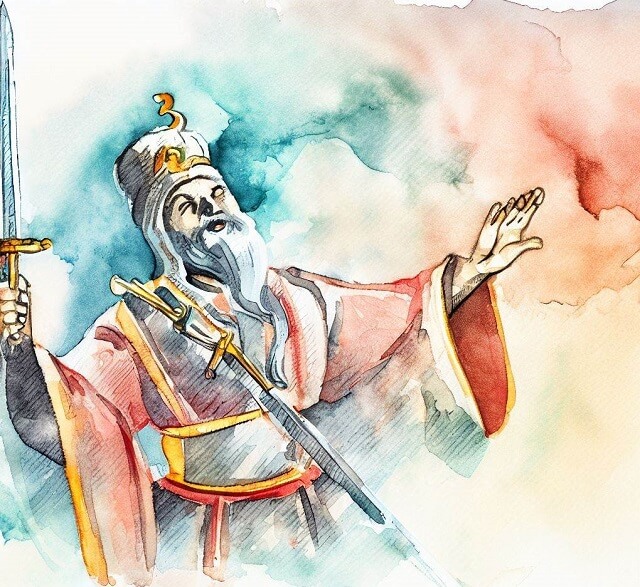
יַעְלְזוּ חֲסִידִים בְּכָבוֹד, יְרַנְּנוּ עַל-מִשְׁכְּבוֹתָם. רוֹמְמוֹת אֵל בִּגְרוֹנָם, וְחֶרֶב פִּיפִיּוֹת בְּיָדָם. (תהילים קמט: ה-ו)
The pious will rejoice in honor, singing on their beds. High praises of the Almighty are in their throats - and a double-edged sword in their hand. (Ps. 149:5-6)
Why do the pious sing in bed? What are their “high praises”? And what do their praises of God have to do with double-edged swords?
The Talmud (Berakhot 5) explains that the “high praises” are the verses of Shema. When we recite the Shema before going to sleep, it is like holding a double-edged sword against mazikin, destructive spirits and inner demons.
Protection When Sleeping
We are a composite of physical and spiritual, body and soul. Our spiritual side is capable, if we so choose, of withstanding all negative influences. But our physical side is liable to fall in the clutches of the “enemies of our soul” — our evil inclinations and negative traits. Ordinarily, we are protected by our powers of intellect. Our intellect is a single-edged sword against destructive urges.
During sleep, however, we are vulnerable, lacking our mental defenses. An unclean spirit envelops the body in sleep. This ascendancy of the physical can leave its mark even after we wake up.
The Sages taught that one should recite the Shema before going to bed. What is the power of this protective measure? When we verbalize our love for God, our desire to be close to Him, our recognition of God’s absolute oneness, we involve the body in a powerful act of holiness. The act of reciting Shema makes a deep impression on the physical side. This impression is even greater than the intellect’s powers, since it empowers the physical component to repel unbridled imaginations and self-destructive spirits.
That is why the verse compares those who recite Shema before going to sleep to warriors wielding doubled-edged swords. They benefit from two defenses against their inner adversaries: their ordinary intellectual powers, and the special impression that reciting the Shema makes on their physical nature.
(Adapted from Ein Eyah vol. I, p. 14)